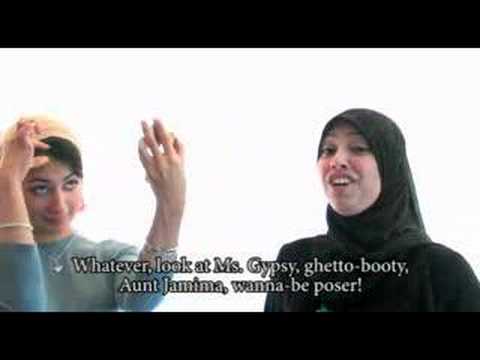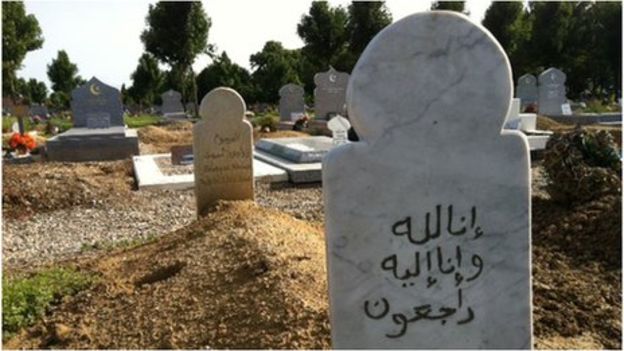As someone who chose to “dehijab,” I respect all Muslim women regardless of whether they choose to wear hijab, not to wear it, or to stop wearing it. What is unacceptable, however, is Muslims being judgmental toward those who simply disagree with them.
Darah Rateb’s, “The dehijabization phenomenon,” addresses a contentious issue facing the Muslim community today. The hijab debate tends to generate heated discussion among Muslims, but unfortunately hits a dead-end when Muslim women express their belief that hijab is not obligatory. Rateb calls these women “just as problematic” as preachers who emphasize hijab over more important duties and responsibilities.
Rateb opens her piece by thoughtfully describing the various reasons women “dehijab” and points a critical eye towards the hijab obsession that has overshadowed discussion of more important duties and responsibilities of Muslims. Her final analysis, however, addressing “women who remove the headscarf because they choose to interpret the Islamic tradition in their own way without training,” diminishes the strength of her article significantly. The initial reasons addressed were implicitly portrayed as acceptable, or more tolerable, reasons for Muslim women taking off hijab. The piece then took a sharp turn as Rateb accused women who do not believe hijab is obligatory of being arrogant: “For someone who has not dedicated their life to the study of Islam to declare that they have the same ability to interpret the Qur’an as the erstwhile amateur, comes across to me as incredibly arrogant, even while they may not realize their obvious arrogance.”
As a Muslim woman who chose to stop wearing hijab out of a belief that it is not obligatory, I felt it was important to express my view on this issue rather than to allow someone else to speak [incorrectly] on my behalf.
I grew up in a very strict Muslim community in Florida where I was one of a few other Muslim girls who did not wear hijab. I always grew up thinking that wearing hijab was obligatory and hoped to wear it when I felt psychologically ready, even though my mother did not wear hijab – and also does not believe it is obligatory. During Ramadan of my last year of undergrad, I felt ready to don the hijab. I remember making a lot of dua (supplication) for Allah to make it easy on me and to help me feel comfortable in it, and subhan’Allah, my prayers were answered.
Although I never grew up questioning hijab, the arguments against it began to loom in my head very soon after I began wearing it. I initially brushed it off and told myself it was just a test from Allah. I realized how serious of a dilemma it was for me, however, when I stopped knowing how to answer non-Muslims when they asked me why Muslim women wear hijab. I did not have an answer anymore because I, myself, was no longer convinced. I honestly cannot pinpoint exactly what made me lose my conviction, but I believe it was primarily based in my being forced to explain why hijab was obligatory – and realizing my arguments were not even convincing to myself.
Wearing hijab was truly a life-changing experience and brought me into a realm I was completely unaware of before. While this sounds dramatic, it really is something one cannot and will not understand until one does it. Thus, as with any life-changing experience, you begin to question and think about issues you could not have considered or even thought of unless you made that change. The most significant issue for me was the fact that I realized the only reason I was keeping it on was out of fear of what my community would say, and not out of fear of Allah. I began to resent everything that came with hijab. A good friend of mine summarized the dilemma beautifully when she said, “I can see how my faith has suffered as a result of my obsession with my hijab to the detriment of my spiritual health.” When I began to feel like hijab was pushing me further from Allah, rather than bringing me closer, that was when I began to explore beyond my blind belief in others’ statements that “it is a command from Allah.”
This juncture in my story is usually where a discussion on hijab turns to the tumultuous path less taken. It appears as though many Muslims get very defensive when they face other Muslims who question their socially acquired beliefs. This is not to say that Muslim women only wear hijab due to socially acquired beliefs. It is to say that from my own personal experience, although I initially wore hijab out of what I thought was conviction, I later realized that the conviction I developed was, in fact, superficial and based subconsciously on what was ingrained in me from a young age. Many Muslim women who begin to question hijab face this dilemma, even if they still believe it is obligatory. It is a natural progression in one’s spiritual growth to look deeper into why we believe what we believe.
Rateb incorrectly assumes that Muslim women who do not believe hijab is obligatory think they “have the same ability to interpret the Qur’an” as those scholars who have dedicated their life to the study of Islam. Contrary to Rateb’s accusation, Muslim women who take off hijab out of a belief that it is not obligatory each have their own personal story that involves an arduous and emotional thought process that made them reach the difficult decision to take off hijab. Additionally, what these Muslim women do believe is that they have the right to question the logic and argument of scholars and to dig deeper and ask questions in response to their answers. If we do not find these answers satisfactory – if they do not put us at ease and make sense to us – then we have the right to disagree.
One of the biggest problems in the Muslim community is that the community often gives holy deference to scholarly interpretations. While I highly respect scholars’ knowledge of Islam, I do not have to agree with their interpretations. This is not arrogant – it is natural. That is why we have four schools of jurisprudence; why the companions of the Prophet often disagreed with one another; and why Islamic history is rife with thinkers who all had differing opinions on even more important issues such as aqeedah (foundation of belief).
Additionally, there is significant importance and wisdom in the fact that the Qur’an was sent down to the masses – to the literate and illiterate alike. At that time the masses had the Prophet to ask questions and receive guidance. This does not translate, however, into today’s scholarly interpretations being anywhere near equivalent to the finality of the Prophet’s guidance. If one believes that a scholar’s explanation and interpretation does not make sense to them, then they should be free to disagree. They should not be accused of being arrogant.
After researching the issue, reading the arguments for hijab, and talking to friends who strongly support hijab, I made the personal decision that it was not something I believed was obligatory. Thus, after four years, I chose to “dehijab.” Wearing hijab for those four years served both positive and negative functions in my life, and it helped me grow immensely as an individual and as a Muslim. While I do not believe hijab, primarily covering of the hair, is obligatory, I do still believe in dressing and acting modestly (“modesty” is a subjective concept, but to each their own).
It is not important or beneficial to go into the reasons why I believe hijab is not obligatory because I am not writing this to convince anyone to adopt my viewpoint. I respect all Muslim women regardless of whether they choose to wear hijab, not to wear it, or to stop wearing it. What is unacceptable, however, is Muslims being judgmental toward those who simply disagree with them. It is unacceptable to accuse those with minority beliefs of being afflicted with very serious diseases of the heart. While it is critical to discuss issues of importance and to argue and learn from one another, launching ad hominem attacks does not enhance the discussion or bolster one’s arguments in any way. The Prophet is narrated to have said that anyone in whose heart there is a mustard seed of arrogance will not enter Heaven. Keeping this in mind, it would be wise for all of us in the Muslim community to be conscious of the gravity of our words, judgments, and accusations.
Rifk Ebeid is a 25 year old Palestinian-American. She has a Master of Arts in Human Rights Studies from Columbia University and is expected to receive her Juris Doctorate degree from George Mason University School of Law in May 2009.






I can’t believe how beautifully you wrOTE this everything you wrote is exactly what I feel bu it seems like I’m having a hard time expressing it. Espeecially when I even debate the interpretation part of it. I’m constantly attacked by hijabis that have suddenly mounted themselves on a high moral and spiritual platform. I just took it off after 12 years about 2 months ago. The response has been dehbidebilitating for me.
Thank you so much for this article. Alhamdullilah, it was refreshing and so necessary to be disseminated.
I can relate 100%. Grew up in a religious and very conservative family. All the women in my family wore hijab and people who didn’t were always bashed.
Then I got married and my ex-husband and in-laws didn’t like me wearing it. I got divorced (yes that was one reason) and have recently decided not to wear hijab. I haven’t given up my faith, just the hijab… until I find the strength to wear it when I’m a better Muslim. My mom recently found out I don’t wear hijab anymore and boy did we have a showdown lol.